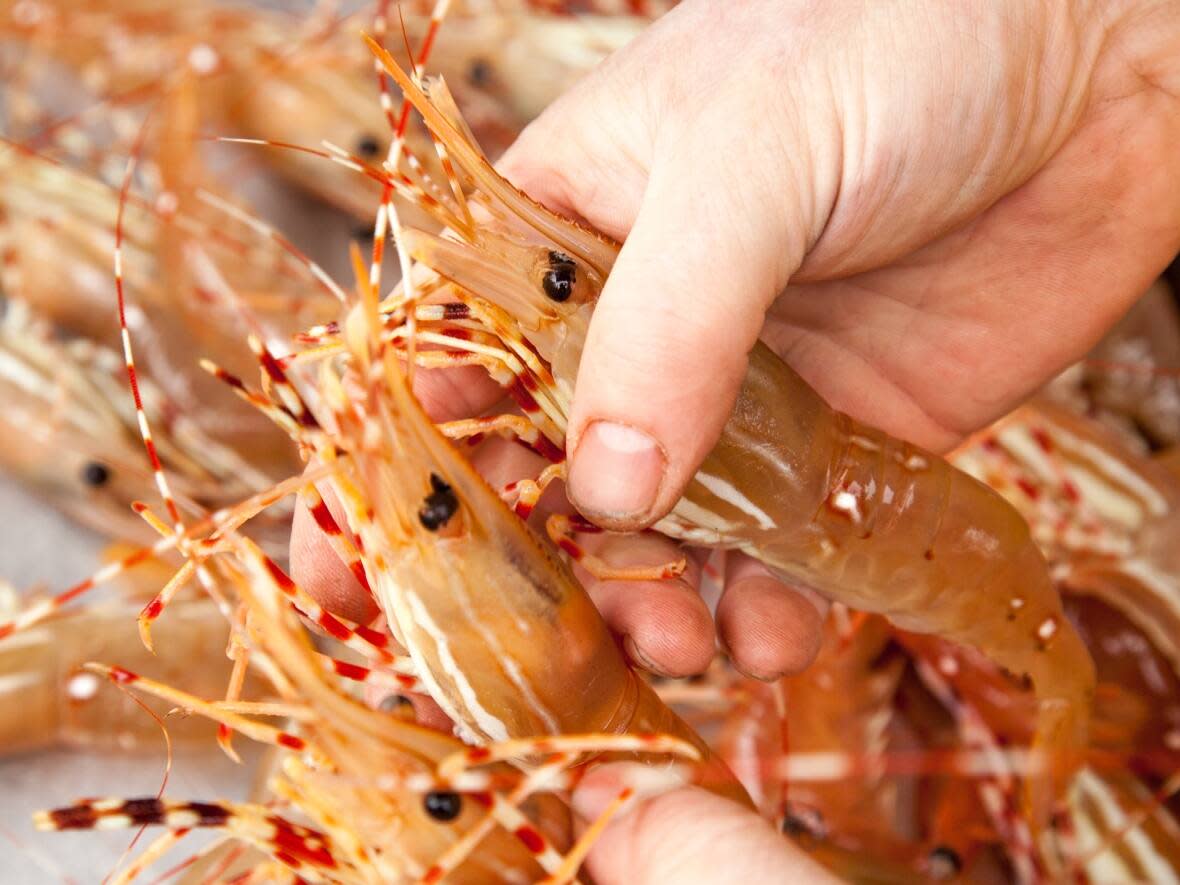B.C. fishers celebrate DFO announcement allowing spot prawn 'tubbing' to continue

B.C. prawn fishers are celebrating a change of heart by Fisheries and Oceans Canada (DFO) that will allow the practice of "tubbing" — freezing spot prawns in tubs of ocean water while at sea — to continue with minimal change.
The announcement Monday by Fisheries Minister Joyce Murray is an about face from an announcement less than a year ago when DFO served notice it was making tubbing illegal.
"This is huge," said Mike Atkins, executive director of the Pacific Prawn Fishermen's Association.
"I think everyone's going to be very excited ... to be able to continue a practice that's been ongoing for 50 years and is very important to us."
For decades, the celebrated B.C. fishery has relied on small boat fishers freezing just-caught spot prawns in tubs to preserve them for transport to local markets.
Instead of outlawing the practice, the new 2023 regulations will limit the packaged volume of tubbed prawns to 710 millilitres or less. It will also require that all packaging material be transparent.
Murray said the changes will make it easy for DFO fishery officers to inspect a catch to make sure it's within size and species limits. The 2023 launch date gives fishers a year to prepare for the changes.
"I'm mindful of the importance of the industry to the fishers, their communities and the whole chain of getting [prawns] to the customers — that's important economic activity," said Murray.
"And, so, finding a way forward that respects both that and conservation, that's the overriding concern."
The spot prawn industry is worth between $40 million and $50 million a year to B.C.'s economy, according to Atkins.

He said tubbing is more important than ever as prawn fishers look to expand domestic sales, with the impact of COVID-19 shrinking the international market.
"This allows fishermen to get the top dollar for their product," he said. "Some will still choose to sell to larger processors, but this allows the smaller, independent guys to package their own prawn tails and sell them at the full retail price."
In March 2021, DFO faced heavy criticism when its conservation and protection arm announced tubbing was being made illegal because the practice didn't allow for ready inspection of a catch.
At the time, small-scale harvesters said the move would destroy the local spot prawn industry and the livelihoods of harvesters and sellers in coastal communities.
A few weeks later, then-Fisheries Minister Bernadette Jordan backtracked on the announcement, changing the initiative to one of outreach and education.

 Yahoo Movies
Yahoo Movies 
